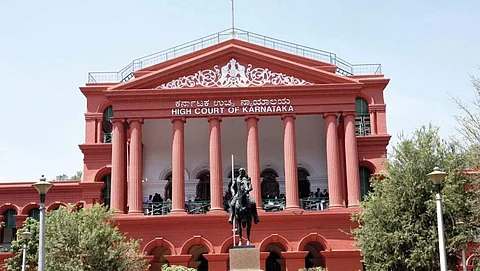

On January 17, the Karnataka High Court issued a notice to the state and Central government authorities on public interest litigation (PIL) filed by a youngster from Hosa Kabbula of Kanakapura taluk in Ramanagara district. The youth filed a PIL seeking directions to stop the running of a madrasa illegally within the premises of Juma Masjid, a centrally-protected ancient monument in Srirangapatna town of Mandya district.
Accusing those running the madrasa of constructing structures for washing and drying clothes, making structural alterations and partitions, constructing toilets, installing a separate gate, cooking food, damaging the compound wall and intricate carvings in the premises, petitioner Abhishek Gowda prayed to the court to direct the archaeology department to restore the monument to its original position, by removing illegal structures, The New Indian Express reported.
After hearing the petition, the division bench of Chief Justice Prasanna B Varale and Justice Krishna S Dixit issued notice to the Ministry of Culture, Government of India, Director General of Archaeological Survey of India, Principal Secretary, Department of Revenue, Government of Karnataka, and Deputy Commissioner of Mandya.
The petitioner, who claims to be an agriculturist and social worker, stated that in July 2023, he went on a sightseeing tour to various historical places in Mandya district and visited Juma Masjid, and to his utter shock, he noticed a residential madrasa being run within the precincts of the masjid and found 50-60 students.
Further, he said that he also noticed the construction of internal partitions, several toilets, bathrooms, restrooms and a kitchen and found that the intricate carvings were damaged. On inquiry, he was informed that a residential madrasa had been running on the masjid premises for the past two years.
For prayers, the students are taken to a nearby mosque, for which purpose the compound wall was broken and a gate was installed. These acts are illegal and violate Section 16 of the Ancient Monuments and Archaeological Sites and Remains Act, and also violate Rules 7 and 8 under the Act, which says that a place of worship or shrine shall not be used for any purpose inconsistent with its character. The petitioner said the authorities have not acted on the representation submitted by the residents and activists of Bajrang Dal, VHP (Vishva Hindu Parishad) and others in May 2022, The New Indian Express reported.
